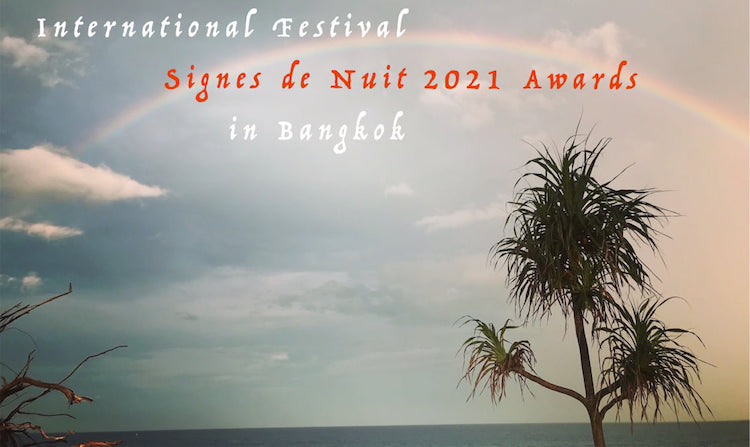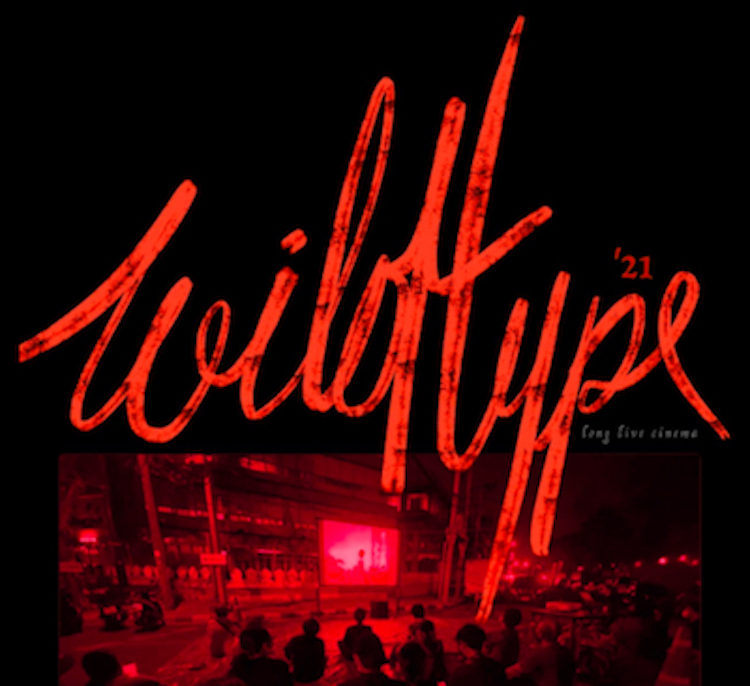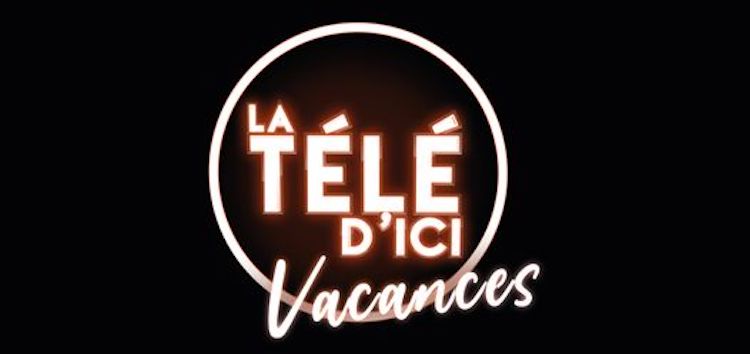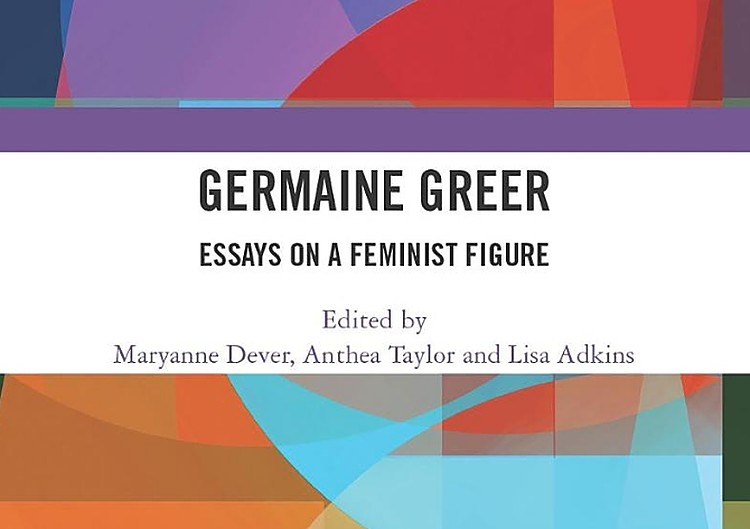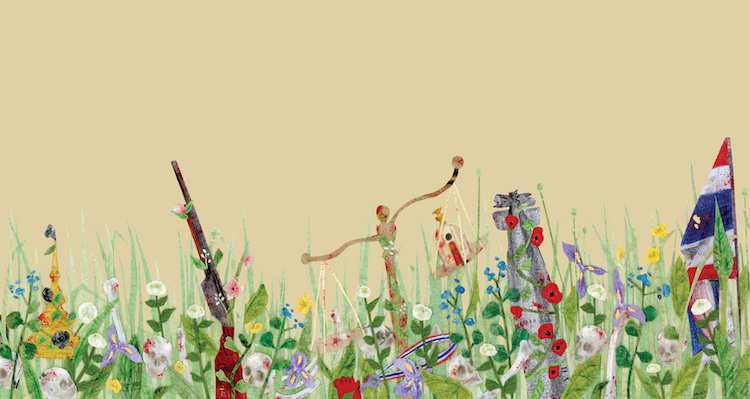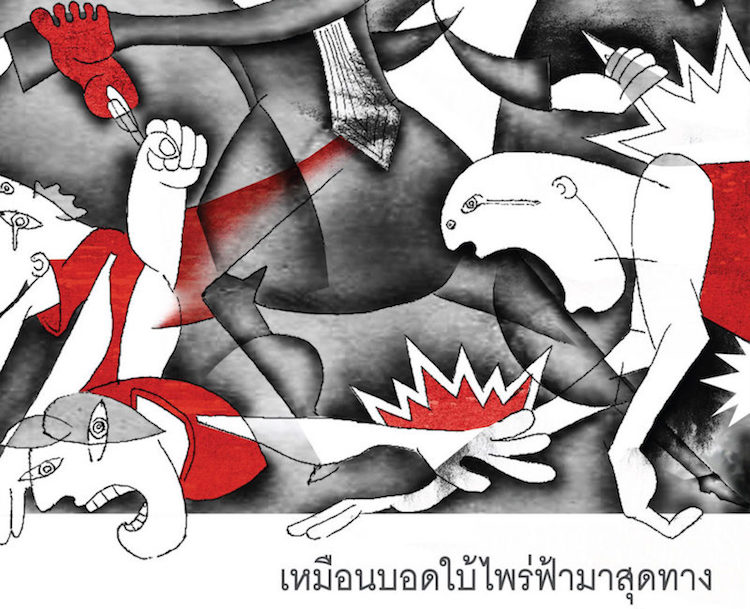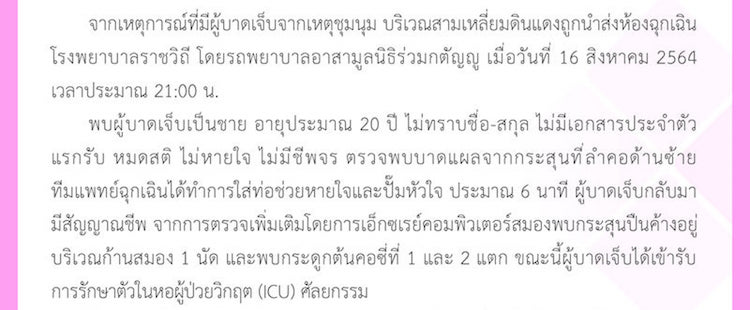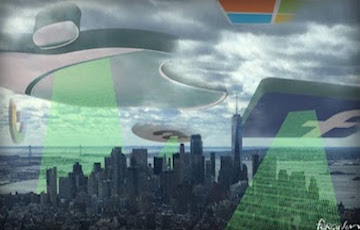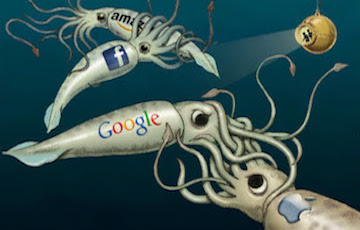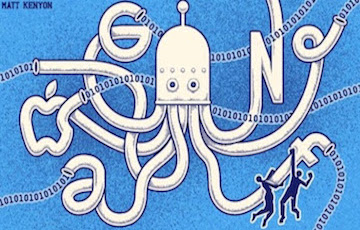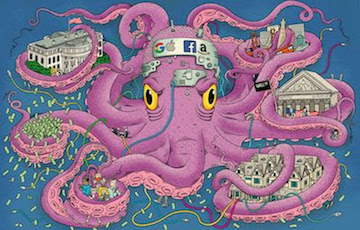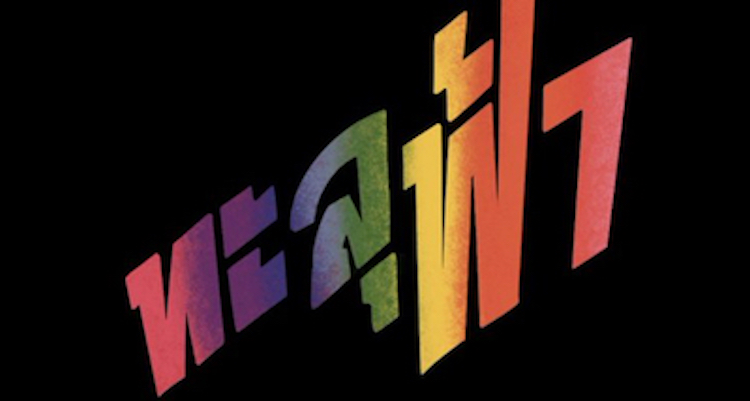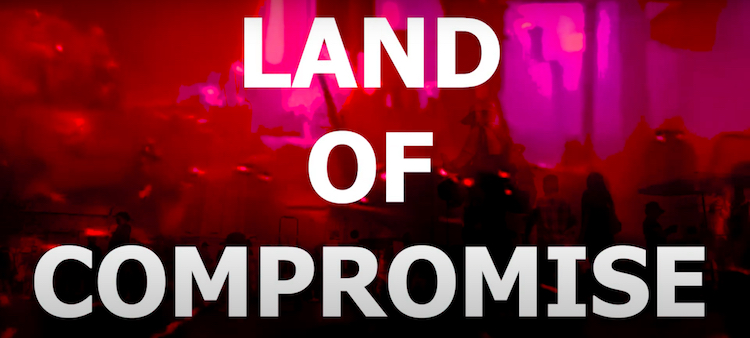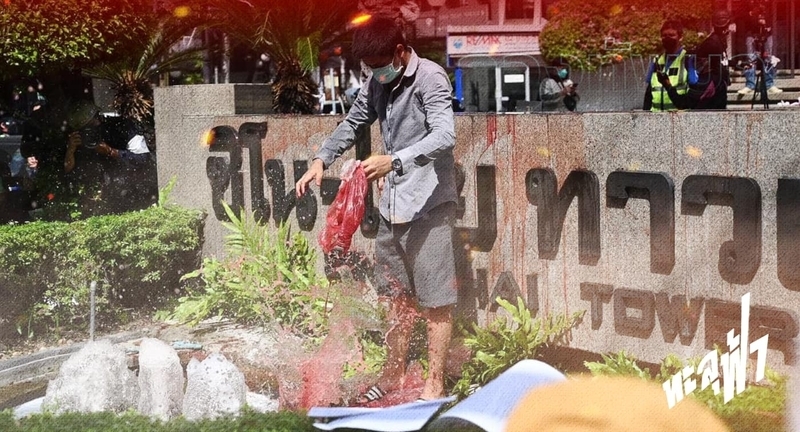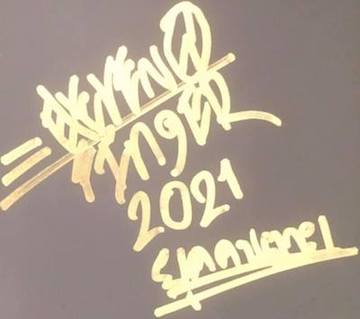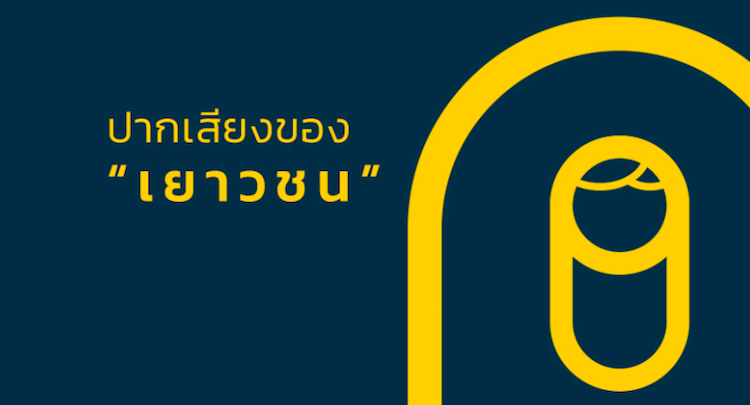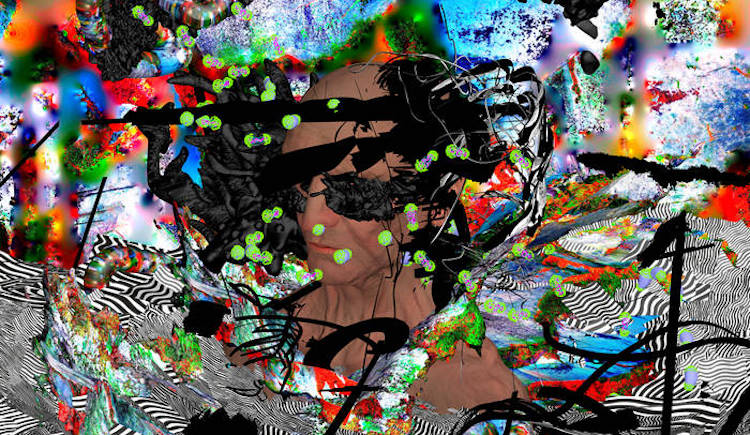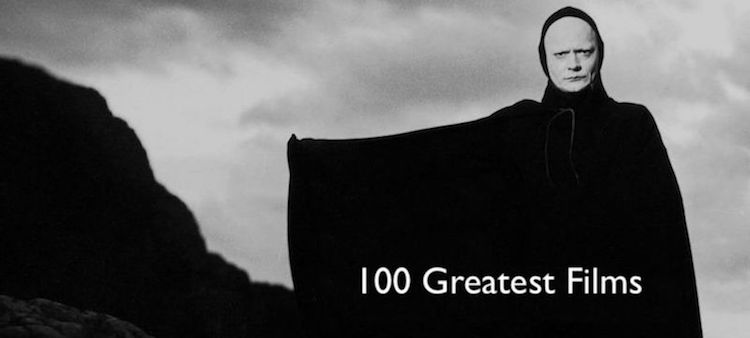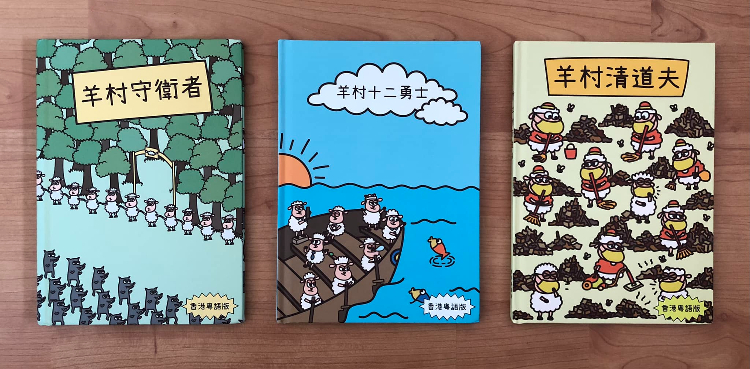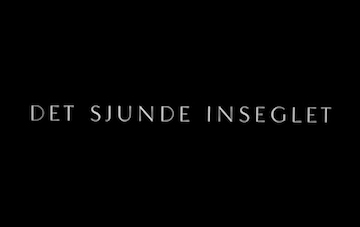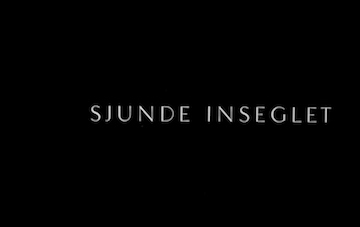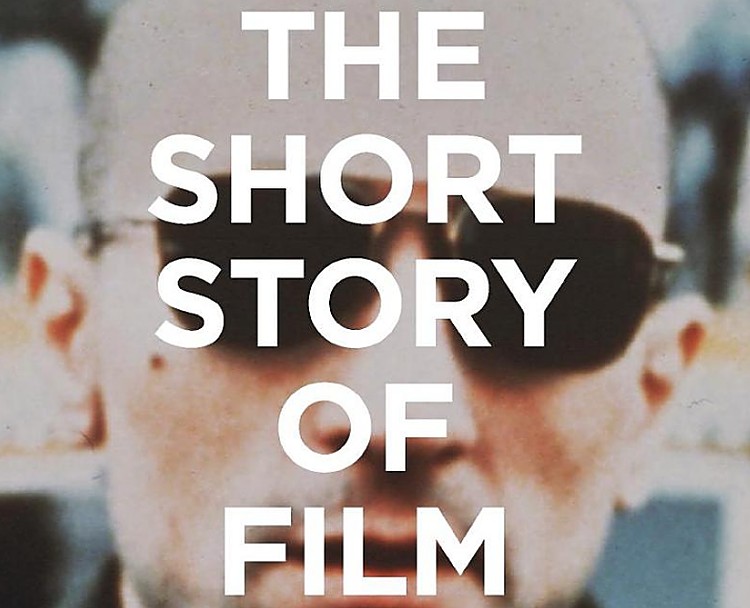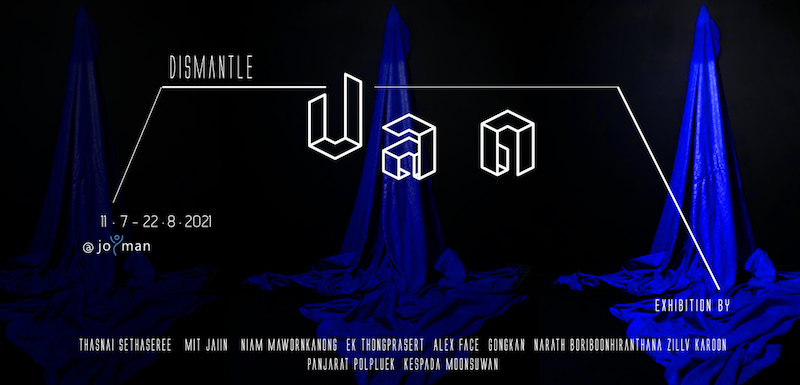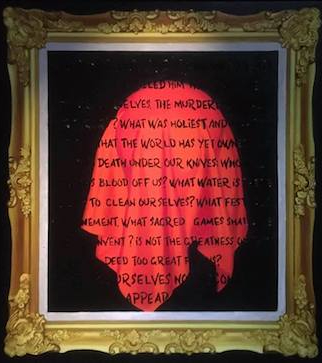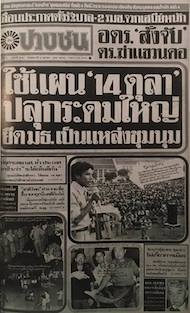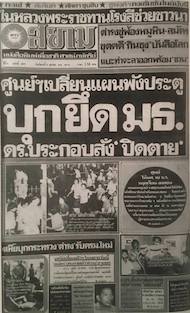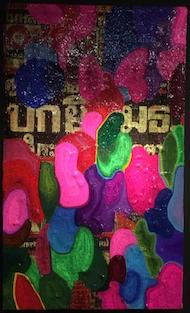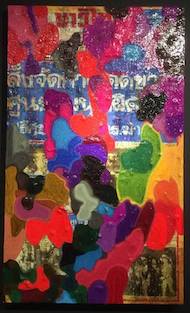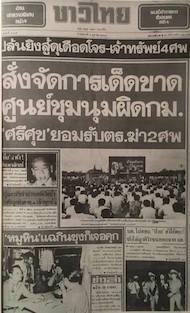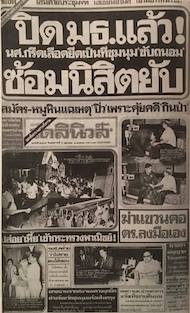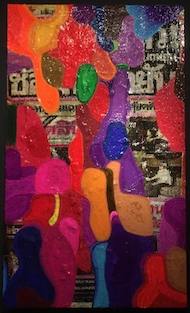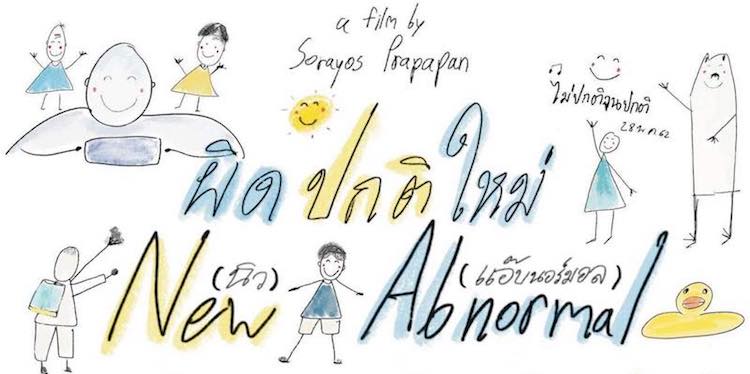
In a series of static shots and long takes, Sorayos Prapapan’s satirical short film New Abnormal (ผิดปกติใหม่) takes aim at Prayut Chan-o-cha and his mishandling of the coronavirus pandemic. In one sequence, a paramedic reveals the scale of the problem: “It’s already mid-2021, our country’s people is still only less than 10% vaccinated.” Sadly and shamefully, the statistic is accurate.
Another scene eavesdrops on a meeting between Prayut, deputy PM Prawit Wongsuwan, and a civil servant. When the bureaucrat asks about bailouts for businesses affected by the lockdown, an irritable Prayut barks back: “Why do you always hand me problems? It’s tiring enough acting as Prime Minister, you know!” Meanwhile, Prawit remains slumped in his chair, fast asleep (as is often the case in parliament). Prayut is played by Phayao Nimma, who also portrayed the PM in The Cave (นางนอน); in the credits, he’s described as “Stupid Prime minister who did coup” [sic].
The film ends with a recreation of an anti-government protest (on a small scale, given the low budget), which is dispersed by riot police with water cannon, tear gas, and rubber bullets (the latter heard but not seen). In the last shot, wisps of tear gas swirl slowly around a solitary rubber duck. The end-credits song is an anti-government anthem based on the Hamtaro (とっとこハム太郎) anime theme tune.
Sorayos’s equally satirical Prelude of the Moving Zoo premiered at ANIMAL KINgDOM last year, as did his documentary Yellow Duck Against Dictatorship. His parody Dossier of the Dossier (เอกสารประกอบการตัดสินใจ) was shown at the 30th Singapore International Film Festival, and his comedy Auntie Maam Has Never Had a Passport (ดาวอินดี้) played at the 18th Thai Short Film and Video Festival (เทศกาลภาพยนตร์สั้นครั้งที่ 18).
Another scene eavesdrops on a meeting between Prayut, deputy PM Prawit Wongsuwan, and a civil servant. When the bureaucrat asks about bailouts for businesses affected by the lockdown, an irritable Prayut barks back: “Why do you always hand me problems? It’s tiring enough acting as Prime Minister, you know!” Meanwhile, Prawit remains slumped in his chair, fast asleep (as is often the case in parliament). Prayut is played by Phayao Nimma, who also portrayed the PM in The Cave (นางนอน); in the credits, he’s described as “Stupid Prime minister who did coup” [sic].
The film ends with a recreation of an anti-government protest (on a small scale, given the low budget), which is dispersed by riot police with water cannon, tear gas, and rubber bullets (the latter heard but not seen). In the last shot, wisps of tear gas swirl slowly around a solitary rubber duck. The end-credits song is an anti-government anthem based on the Hamtaro (とっとこハム太郎) anime theme tune.
Sorayos’s equally satirical Prelude of the Moving Zoo premiered at ANIMAL KINgDOM last year, as did his documentary Yellow Duck Against Dictatorship. His parody Dossier of the Dossier (เอกสารประกอบการตัดสินใจ) was shown at the 30th Singapore International Film Festival, and his comedy Auntie Maam Has Never Had a Passport (ดาวอินดี้) played at the 18th Thai Short Film and Video Festival (เทศกาลภาพยนตร์สั้นครั้งที่ 18).

